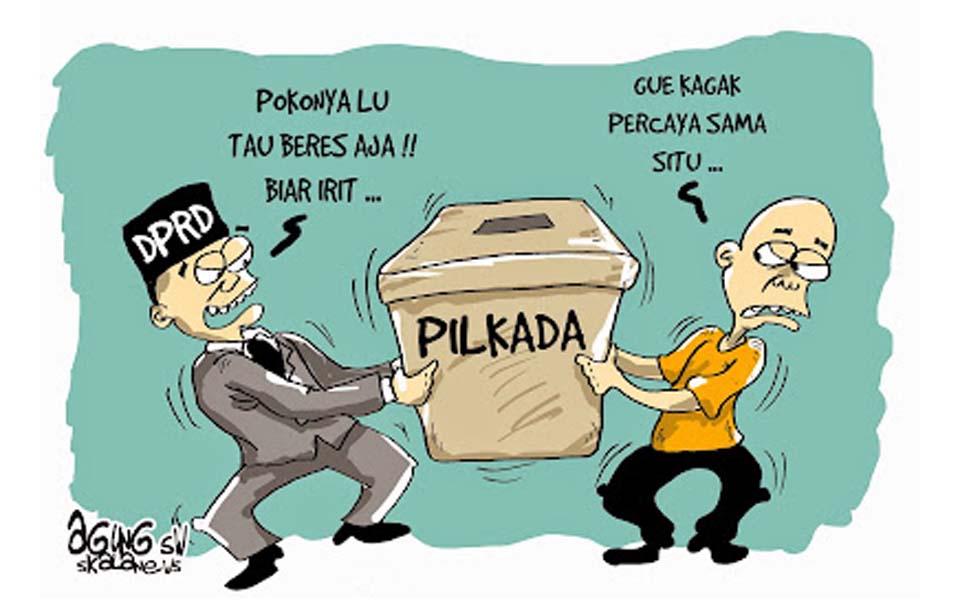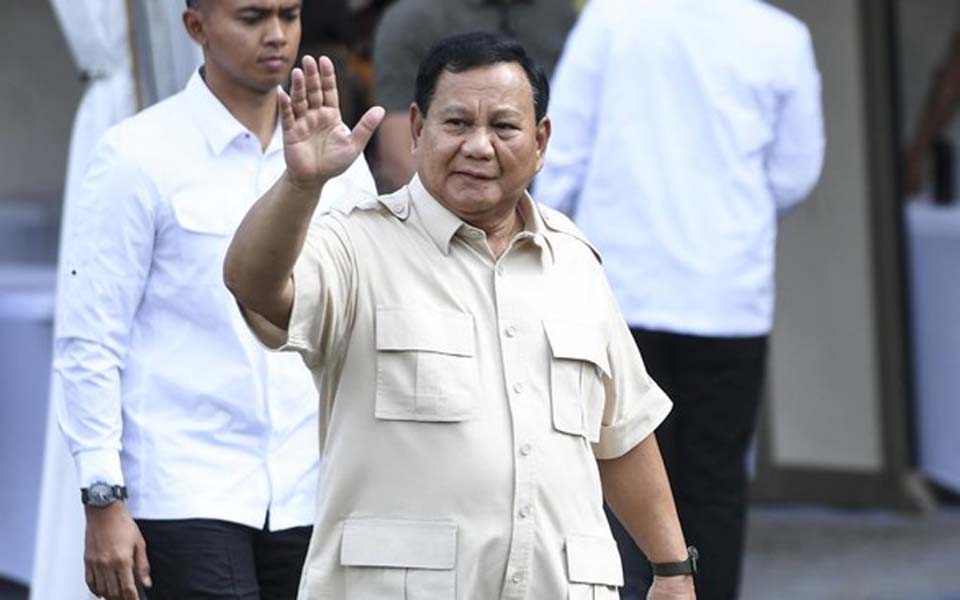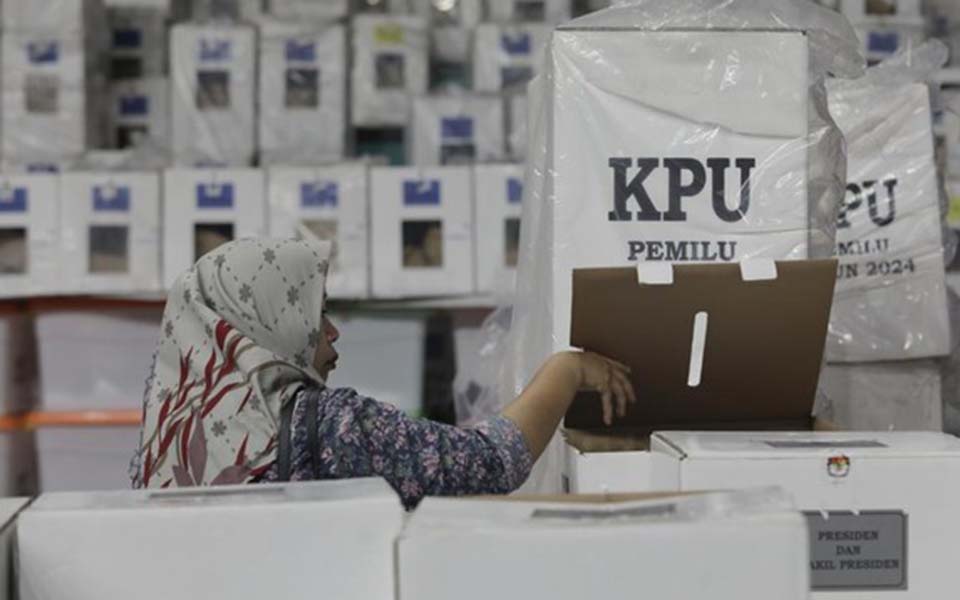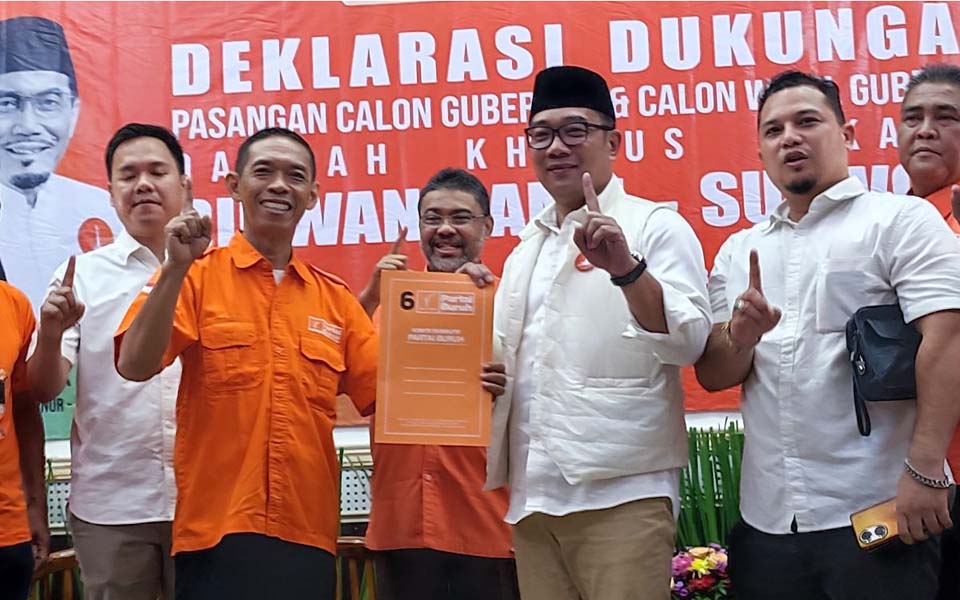[The following is a statement issued by Aceh Papua Solidarity (Solidaritas Aceh Papua, SAP) on April 12 following reports of intimidation and violence by the military during the April 5 general elections in Aceh and West Papua.]
The legislative elections are over. A number of problems still remain however, particularly with regard to the question of technical problems related to vote counting; and this does not excluded conflict areas such as Aceh and West Papua. But it is not just a question of technical problems – as has become the main issue in the current pubic debate – the people in these two provinces are still experiencing repression by the military so that there was no democratic space whatsoever which could be utilised by the existing political forces; except for those political forces which support the government’s repressive policies. In Aceh, martial law is still in force while in West Papua troop reinforcements are continuing, both organic and non-organic. On the grounds of maintaining stability, the military has limited democratic space. It is easy to imagine that in a situation where the democratic space is so limited the elections could not have been run democratically, openly and honestly.
From the start in Aceh, the elections were lacking a clear legal basis. This is related to the state of martial law which has been in place since May 19, 2003. The elections and martial law each have a different legal basis, which resulted in a lack of clarity over who actually has authority. For example, martial law in Aceh is based on Law Number 59/1959 on a State of Emergency which is elaborated on in Presidential Decree Number 28/2003 on Martial Law in Aceh, in which the TNI (armed forces) act as the Emergency Military Command (PDMD) and have the highest authority. Meanwhile the elections are based on Government Regulation Number 12/2003 on Elections which places the National Election Committee (KPU) as the highest authority in implementing the elections. In such a situation, when the government is unwilling to revoke martial law but still wishes to organise elections there was an effort at coercion. The elections which were forced on the Acehnese people left behind an important record, in terms of the principles of democracy as well as its technical aspects.
For example, there were cases where ballot papers were not counted at poling booths but taken to the regency for counting. In Panggoi and Banda Sakti, as many as 80 per cent of ballot papers were damaged. Not to mention what occurred in Central Aceh where the [former state ruling party during the Suharto dictatorship] Golkar Party symbol was marked beforehand and the people arrived only to vote counting had already started. The body responsible for counting the vote was under the control of the police and the military only allowed election monitors to get within 50 metres of polling stations. The large number of damaged ballot papers in Aceh, which was as high as 49.1 per cent, must be seen as a form of resistance by the Acehnese people not because they did not understand the voting procedures. There was coercion to vote for a specific political party by the TNI/police, that is the Democratic Party. Of serious concern were incidents of military sweeps to check if people’s figures were marked with ink [ie they had voted] and if not they were labeled as being members of the Free Aceh Movement. The people of Aceh saw the elections as an obligation, not as a citizen’s right.
In Papua, the prolonged conflict and the reemergence of a separatist group had manifested itself beforehand over the dispute about dividing West Papua into three smaller provinces. This problem has still not been resolved. However in the process of holding the elections, the regional KPU was formed in accordance with the structure of the three new provinces which had been manipulated by the government. This is despite the fact that a legal umbrella has yet to be determined. This is despite the fact that as we know, the dispute of the division has already resulted in a number of deaths when the people were successfully set against each other. Because of the structural implementations of the elections in Papua therefore, it has absolutely no legal basis or legitimacy. There were a number of examples of election violations which were linked with the Papuan conflict. For example accusations that the Papuan Presidium Council and the Free Papua Movement were campaigning to boycott the elections were used by the military to legitimise illegal actions. There were cases of votes being bought in Sorong for between 2,500-10,000 rupiah. There was no socialisation on voting procedures, especially in the mountain areas, and this opened up the possibility of manipulation by pro-regime political forces. In addition to this, in Papua there was a large percentage of the public who did not understand the elections and this was taken advantage of by [President Megawati Sukarnoputri’s Indonesian Democratic Party of Struggle] PDI-P and Golkar. Meanwhile in Sorong there were polling stations which were burnt down by local people as a form of resistance against the government who had forced them to participate in the elections.
Based on the above, Aceh Papua Solidarity therefore makes the following demands:
1. Reject the election results in Aceh because people were forced to vote by the military in order to benefit the pro-regime political forces and further tighten the limits on democratic space.
2. Reject the election results in West Papua because there were no legal basis to hold the elections when there has yet to be a resolution to the issue of the division of West Papua into three new provinces. In addition to this an illegal military operation is being conducted to benefit pro-regime forces.
3. Reject Golkar and the PDI-P as the winners of the election because they used conflict areas to score votes though fraudulent and repressive means.
4. Revoke martial law in Aceh and resolve the Aceh question democratically.
5. Reject the division of West Papua into three new provinces until the conflict has been resolved through the broadest possible dialog.
- Reject the election results in Aceh and West Papua!
- Revoke martial law in Aceh now!
- Reject the division of West Papua!
Jakarta April 12, 2004
Aceh Papua Solidarity (SAP)
s/- Arie Arianto
Coordinator SAP
[Translated by James Balowski.]















